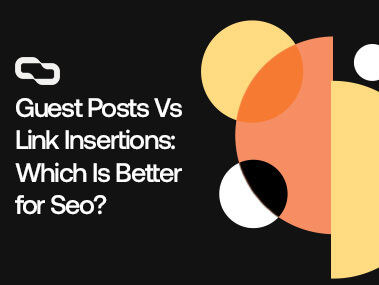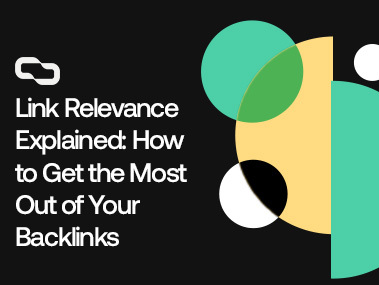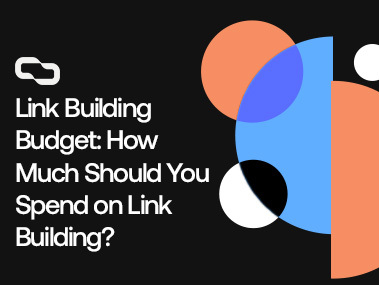12 Affiliate Link-Building Techniques That Work in 2024
Let me be honest with you.
Link building for affiliate websites is quite hard — especially if it's a new website with no authority.
No one will ever link to your money pages, and even if you've good info content, it's still challenging to get links.
I've been building links for about 4 years now, during which, I've built hundreds of high-quality backlinks for affiliate websites.
In this guide, I'll share with you my top X ways to build links for affiliate websites.
How to Build Backlinks to Your Affiliate Site
1. Offer Testimonials
It's a common digital marketing practice to share what people are saying about your product or service on your website.
It provides the social proof that your company needs to convert visitors into paying customers.
Now, think of this: Who's better to give a testimonial than someone who spent hundreds of hours researching and testing different products in the niche?
Exactly!
Here is how to do testimonial link-building for an affiliate website:
- Make a list of all products/services that you use.
- Find the email addresses of the big dogs, such as the CEOs, CMOs, etc. Why? Because they are the ones who care most about their product and value honest feedback.
LinkedIn is the best way to find the email addresses of the big dogs. - Send an Icebreaker. A good testimonial can take quite some time to write, so don't start writing it before you know the other party is interested. Test the waters first. Introduce yourself, tell them how much experience you have in the niche, etc. Then, ask them if they'd be interested in a testimonial to share on their website. The goal of this step is to let them know that you're truly an expert and that your opinion means something.
- If they're interested, start writing your review. Make it short, genuine, and personal. Back it up with data and numbers if possible. For example, if you're reviewing our guest posting service, you could write something like “Since I started using Get Me Links, my website's traffic grew by 117% in just 5 months.”
Video testimonials work really well. Most people are nervous in front of the camera, so offering a video can really increase your success rate.
2. Combine Resource Pages With Badges
This technique doesn't work in every niche, and it requires you to have some sort of authority.
If you can pull it off, however, it can get you tens of super-relevant links.
Let's say you have an affiliate website in the dog niche.
What you can do is create resource pages for things like the best dog grooming websites, best dog training websites, best websites for golden retrievers, etc.
Use ChatGPT to write the blog post, then reach out to those blogs congratulating them on making it to the list, and offering them a free HTML badge that they can embed on their websites.
What makes this technique work really well is that it uses the fact that people love to show off their achievements.
So if you have any credibility in your niche, resource pages can be an amazing way to attract links.
Think local. Try making roundups for things like best dog groomers in [city].
You can also build links the other way around.
Find resource pages in your niche, and ask them to add your website to the list.
It won't earn you the best of links, but it's still something to consider.
3. Publish Data Studies
I know what you think.
“I'm just a small affiliate site owner, and I don't have the resources to conduct data studies.”
But trust me, it's actually a lot easier nowadays.
Here is how to conduct data studies for small websites:
- Create a survey using SurveyMonkey or Google Surveys.
- Look for a website in your niche with a big email list and ask them if you can buy an ad space for your survey. Alternatively, you can use a service like Pollfish.
- Collect your data and write your article.
- Promote, promote, and promote.
4. Create Online Tools
Free tools are natural link magnets.
You just need to find a need in your niche that can be solved with a simple tool.
For example, if you're in the generator niche, a good tool could be a generator size calculator or a list of home appliances and how many watts they use.
If you're in the pet niche, you can make a tool that determines how often you should shower your dog based on the breed, season, age, how active it is, etc.
You can always find a tool that can make people's life easier.
So start brainstorming some ideas now.
You can use ChatGPT to create simple WordPress tools even if you have zero coding experience.
5. Design Infographics
People love infographics.
They're easier and faster to consume and provide much-needed breaks from walls of text.
This makes them a great linkbait.
There are 2 ways to build links with infographics for affiliate sites:
- Create appealing infographics for your content and promote them using email outreach and social media.
- Reach out to competitors and offer them a free custom-designed infographic for their top-performing article in exchange for a backlink.
Both techniques work really well, but the second one works a little better for small websites that don't have unique insights or original content.
Agency Tip: Infographics link building works best when you have original content, so try combining data studies with infographics for the best results.
6. Write Guest Posts
Offering a free article in exchange for a backlink doesn't work anymore.
No one trusts your content quality, and they'll assume you are just a link builder trying to get free links, so they'll charge an arm and a leg as “editorial fees.”
Additionally, every website owner gets tens of guest post requests per week.
So unless you can distinguish yourself from the crowd, you won't get any responses.
How to rise above the noise? You might ask.
By offering real value.
One of my favorite ways to offer value is by finding content gaps.
This technique is pretty simple.
I start by finding a low-authority website in my niche that gets a bunch of organic traffic, and then I run a content gap analysis in ahrefs.
This report will show all the keywords that this weak website is ranking for, but not my target website (the website I need a link from.)
I choose a few keywords with good potential, then email my target website telling them how this low authority site is pulling that much traffic using these keywords, and offer them a free article covering one of these keywords.
This way I'm actually offering value, and I'm letting them know that I'm serious about producing high-quality content.
Agency Tip: Make sure to add relevant samples of your previous work to improve your credibility.
7. Offer Article Rewrites
Over time, the SERP changes, and articles that were once in top positions, are now at the bottom of page 1.
This makes a great link-building opportunity for affiliate sites.
All you have to do is find outdated articles and offer to rewrite one of them free of charge.
To sweeten the deal, you can also offer to optimize it with SurferSEO, add internal links, etc.
If you can convince them that you are a good writer who can add to their post, that's a backlink for you.
And not any backlink, that's a link from a ranking page that can get you some referral traffic.
You can find outdated articles using the following search operator:
intitle:Year "Keyword"
For example, if I'm trying to find old articles on link building, I could search for
intitle:2022 “link building”
Agency Tip: The more the website owner cares about their article, the more likely they'll accept your offer. Use ahrefs or SEMrush historical data to find web pages that lost their ranking position over the past year, then email them offering an article refresh.
8. Use HARO
HARO stands for Help A Reporter Out, and it's basically a platform that connects journalists with subject matter experts to help them write their articles.
For instance, if a journalist is writing an article about “foods that are bad for your cat,” and they're not sure if cats can eat avocado, they'll sign in to HARO and ask that question, so vets can help them.
Usually, when you help a reporter, they'll quote you on their article with a link back to your website.
This makes HARO an amazing way to get links for high authority websites, such as Forbes, The Guardian, The New York Times, etc.
Now, I must say that HARO is super competitive.
Everyone and their dog are replying to HARO queries — even if they don't know what they're talking about.
In fact, I know some SEOs that built in-house scripts that automatically answer HARO queries using AI.
That's why you need a HARO link-building strategy.
If you need to learn more, make sure to read our full HARO Link Building for Beginners guide.
9. Develop Strategic Partnerships
Affiliate link building isn't just about tactical approaches or smart algorithms.
Sometimes, the age-old art of forging human relationships and partnerships can lead to some of the most valuable backlinks you'll ever receive.
Here are a few benefits of strategic partnerships:
- Discover Guest Posting Opportunities: The hardest part of guest posting is finding reputable websites that accept guest authors. Now, by partnering up with someone in your niche, they can introduce you to third-party websites that are open to guest posts. It's a foot in the door that cold outreach often can't provide. A partner vouching for your credibility can work wonders.
- Engage in Link Partnerships: As the saying goes, "You scratch my back, I'll scratch yours." Partnering with complementary, non-competing businesses in your niche allows you to regularly link to each other in your guest posts. For example, if I land a guest post, instead of just linking to one of my pages, I'll also link to one of my partner's pages. And they'll do the same. It takes absolutely no effort, but can eventually double the amount of backlinks you get. It's a win-win.
- Co-marketing Activities: Think beyond just links. Co-hosting webinars, creating collaborative eBooks, or even simple social media shoutouts can help your Search Engine Optimization (SEO) efforts.
10. Monitor Unlinked Brand Mentions
When someone talks about your affiliate site or references the unique content you've produced, but doesn't link back to you, that's an unlinked mention. And believe me, these are golden nuggets waiting to be mined.
Here's a simple roadmap to transform unlinked mentions into precious backlinks:
- Monitor Mentions: Tools like Google Alerts, Mention, or Brand24 will notify you when your brand name, unique content, or specific terminologies associated with your site appear online. Make them your new best friends.
- Evaluate the Quality: Not every mention deserves a backlink. Prioritize mentions on high-authority or relevant sites. Remember, it's always quality over quantity. For more information, check out article on what makes a high-quality backlink.
- Craft a Gentle Reminder: Now, you'll need to reach out. Send a friendly, appreciative email acknowledging their mention. Express gratitude, and then humbly request if they'd consider linking to your site for added context or value to their readers. Most times, since they're already familiar with your content, they'll be more than happy to do so.
Agency Tip: Personalize your outreach. Generic emails can feel robotic. Compliment their work or point out specifics from their content. Make it evident you've done your homework.
- Provide Additional Value: Can you offer an update, an infographic, or an additional insight that would make their article even better? This is a great way to sweeten the deal.
- Maintain Relationships: Don't just disappear after securing a backlink. Engage with their content, share it, or even comment. Building lasting relationships in the digital space can lead to more natural mentions and links in the future.
11. Interview Industry Leaders
One of the most underrated affiliate link-building strategies is leveraging the reach and authority of industry leaders.
Why?
Because these leaders often have a significant social media footprint.
Whether it's Twitter, LinkedIn, Instagram, or a personal blog, they've amassed followers who trust their insights and recommendations.
When you interview these leaders and they share the interview on their channels, it introduces your website to a new, broad audience.
Many of these followers run their own blogs, websites, or platforms.
If your content resonates, it becomes a topic of discussion, leading to natural backlink opportunities.
Hosting an interview with a recognized figure in your niche instantly boosts your site's credibility as well.
When people see that industry leaders are engaging with your content, they're more likely to view your site as an authority, further increasing the chance that they'll link to your content in their own publications.
12. Conduct A Broken Link Building Campaign
Broken link building doesn't work as well as it used to.
Everyone understands the value of backlinks, and if you're an affiliate that earns money from their website, chances are that webmasters will charge you for links.
But that doesn't mean you can't get some free backlinks from a broken link-building campaign.
You just need to offer a really good replacement.
Here is how to conduct a broken link-building campaign:
- Start by finding deleted pages with lots of backlinks. Plug in your competitors in ahrefs, navigate to the best by links tab, and then filter for 404 pages. This will bring a list of all broken pages that have backlinks pointing to them.
- Check the old page using the Wayback Machine. Analyzing the page will help you understand why people linked to it in the first place, and it will also give you an idea of how to make a better version of this page.
- Create a much better version. Utilize new data, appealing graphics, and anything that would make your article worth linking to.
- Reach out to websites telling them they're linking to a broken page and asking them to link to yours instead.
Agency Tip: Sometimes it helps to offer a small fee for their trouble.
How Many Links Should I Build to Affiliate Sites?
The amount of high-quality links you should build to your affiliate site largely depends on your budget and how much traffic your site gets. As a rule of thumb, you can safely build 1 link for every 1,000 traffic your website gets.
When Should You Start Affiliate Link Building?
You should start affiliate link-building as soon as your content is indexed.
What Is Affiliate Link Building?
Affiliate link building is the process of building backlinks to your affiliate website.
Conclusion
Affiliate link building is no easy task.
Each campaign can take tens of hours of work, and even if you did everything right, there is no guarantee that you'll land good links.
On top of that, affiliate marketing is super competitive.
Multiple websites will compete for the same lucrative keywords — making it an absolute must to get more quality links than your competitors.
We understand how challenging this is, and we'd love to help.
We offer free consultation calls for affiliate website owners.
In this free call, we'll discuss how many links you need to build, what pages you should prioritize, and work together on the best affiliate marketing backlink strategies based on your budget.
Find out your exact cost of ranking for your dream keyword
Let’s get you ranking now
If you want the team at Get Me Links to help you get more traffic



